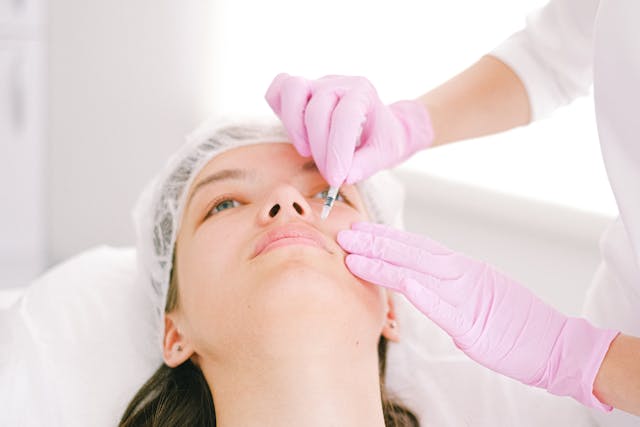Are Cosmetic Treatments Harmful to Your Health?

From Botox injections to chemical peels, an increasing number of individuals are opting for cosmetic procedures to enhance their looks and boost their confidence. A 2023 study indicated that nearly 40% of Australians are contemplating cosmetic surgery in a world where the pressure to meet aesthetic standards has grown considerably. This raises a significant question: How safe are these cosmetic treatments, and could they adversely impact one’s health?
Although many cosmetic procedures are deemed safe when conducted by qualified professionals, there exist inherent risks with any medical procedure. Knowing these risks and evaluating them against potential benefits is crucial for anyone thinking about cosmetic treatments.
While approaching cosmetic treatments, it is vital to exercise caution and maintain realistic expectations. It’s important to acknowledge that these procedures can positively affect lives, improving them both physically and psychologically. When conducted safely and ethically by qualified professionals, cosmetic procedures have the potential to improve wellbeing and raise the quality of life for many people.
Possible Side Effects
A major concern with cosmetic treatments is the use of synthetic ingredients and chemicals. Procedures such as Botox and dermal fillers involve injecting neurotoxins or synthetic compounds into the skin, which can potentially cause adverse effects in some people. Allergic reactions, inflammation, and possible infections are complications that might arise from these treatments.
The long-term consequences of repeated exposure to such substances are still not fully understood. Many individuals may find immediate satisfaction with their cosmetic improvements, but the effects of prolonged use over many years remain an ongoing subject of research.
For instance, a study from a 2019 journal determined that using Botox for cosmetic purposes is generally safe even with repeated applications. However, prolonged use of botulinum toxin may induce permanent changes in facial expressions, leading to a mask-like look, whereas severe side effects from Botox are rare.
This observation seems to apply generally to most common cosmetic treatments, where the risk of even minor side effects is quite low if performed correctly and under medical supervision and guidance.
In addition to the potential chemical risks, procedural risks must also be considered. More invasive procedures like facelifts and liposuction carry the risk of surgical complications, such as bleeding, infection, and scarring. Even minimally invasive treatments like chemical peels and laser therapy can result in negative effects such as hyperpigmentation, burns, or scarring if not done properly. Hence, it is vital for individuals considering cosmetic treatments to thoroughly research clinics and ensure their provider is properly accredited and reputable. Quality clinics should provide detailed information about their experience, practitioners, and philosophy online.
Psychological Impact
The psychological consequences of cosmetic procedures are significant. While many people opt for these procedures to enhance their self-esteem and body image, the obsession with perfection can sometimes foster body dysmorphia or other psychological issues. Unrealistic expectations and a continual desire for improvement may lead to dissatisfaction and dependence on cosmetic procedures. Nonetheless, this body dysmorphia and dissatisfaction is also seen in groups focused on fitness or sports, indicating a correlation rather than direct causation.
Additionally, it’s important to factor in the financial burden of cosmetic procedures, which can be expensive, particularly for more invasive operations or those requiring multiple sessions. For some, the financial pressure of maintaining a certain appearance through cosmetic enhancements can significantly affect their overall wellbeing.
Positive Impact
It’s crucial to recognize that cosmetic procedures can positively influence individuals’ lives. For many, feeling confident in their appearance can enrich their quality of life and general happiness. A positive self-image can greatly enhance emotional wellbeing and mental health.
Studies show that people content with their physical appearance tend to have lower stress, anxiety, and depression levels. Cosmetic treatments that help individuals feel more comfortable and assured in their skin can foster a greater sense of happiness and satisfaction.
Some studies also suggest that individuals perceived as more attractive might enjoy advantages socially and professionally, such as improved job prospects, higher earnings, and better interpersonal interactions. While appearance should not be the sole indicator of success, cosmetic treatments can help people present themselves with more confidence and effectiveness in various professional and social settings.
Nevertheless, it is vital to approach cosmetic interventions with caution and realistic expectations, weighing both potential risks and benefits.
Ultimately, deciding to undergo cosmetic treatment is a personal choice that should be made after thoroughly considering all involved factors. Consulting qualified medical professionals, thoroughly researching the intended procedure, and being honest about personal motivations and expectations are critical steps to ensuring a safe and satisfying outcome. While cosmetic treatments might provide temporary enhancements to appearance, prioritizing overall health and wellbeing should always remain paramount.




